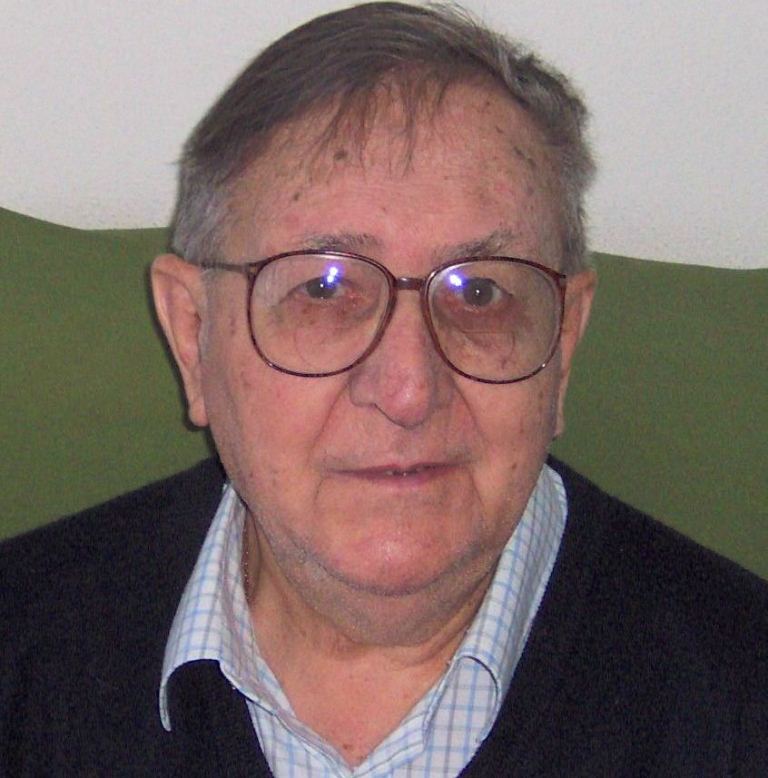Daniel Comboni
Comboni Missionaries
Institutional area
Other links
Newsletter
In Pace Christi
Mangili Antonio
Fr. Antonio Mangili was born on 5 November, 1917, at Ponte San Pietro (BG). Having finished his primary education at the apostolic school in Brescia in 1933, he entered the novitiate at Venegono and took first vows on 7 October, 1935. He then went to Verona to finish his Liceo and begin to study theology. He was ordained in Verona on 29 June, 1940. He finished theology in 1941 and stayed at the Mother House in Verona during the difficult war years and up to 1947. There he was engaged in ministry and Comboni Studies. He was also secretary in all but name to the Superior General, Fr. Antonio Vignato.
Her was sent to the Apostolic Vicariate of Bahr-el-Ghazal where he worked from 1947 to 1957, first at Wau (1947-1949) then at Bussere (1949-1955) as Rector of the minor seminary and, lastly, at Tonj and at Warap (1955-1957), among the Denka.
The mission of Wau, as the seat of the Vicar Apostolic, was the powerhouse of the activities of the other locations in the Vicariate. Fr. Antonio was secretary to Mgr. Edoardo Mason for two years. He was appointed rector of Bussere Seminary and carried out this delicate work for six years. He was also the formator of the seminarian who afterwards became Cardinal Gabriel Zubeir Wako. Those were difficult times when, after the revolt and disturbances of Torit (August, 1955), all the schools were closed. There was a widespread climate of fear, anxiety and suspicion. A campaign of accusations against the missionaries and the Catholic Church had begun. In 1955, Fr. Antonio was sent to Tonj and then to Warap where one of his first and fundamental tasks was to dig a “proper” well for those people who knew no better water than that of the ditches and pools. After digging only eight metres, to the great happiness of all the people, they found plenty of clean water. While the mission was growing, the government began to expel the missionaries.
Having returned home in 1957, for holidays and to have some rest, Fr. Antonio stayed there until 1960: he spent the first year as spiritual director in Brescia and then two more years in Verona at the church of San Tomio.
In 1960 he was sent to Ecuador where he stayed for 46 years, up to 2006: from 1960 to 1962 at the mission of Quinindé; ten years (1962-1972) at Quito as Procurator of the Vicar Apostolic of Esmeraldas; from 1973 to 1982 at the mission of San Lorenzo; from 1982 to 1986 he worked at the Boys’ Town in Esmeraldas; from 1986 to 1989 at the parish of “The Virgin of the Wayside”, also in Esmeraldas; from 1989 to 1998 at the parish of “El Carmen”, in the Archdiocese of Portoviejo-Manabí and, from 1998 to 2005 at the new parish of “Our Lady of Peace”, El Paraíso-La 14, an offshoot of “El Carmen”.
His move from Africa to Latin America was quite a culture shock, due both to the new situation he had to face as well as the new language he had to learn. It transpired that, during his first year in Ecuador, Fr. Antonio wrote from Quinindé to the Superior General, Fr. Gaetano Briani: “I must say in all sincerity that my former missionary experience (in Sudan) did not prepare me for what I found here: real poverty, destitution almost, a very difficult religious environment and exhausting work. However, after being here for four months I am much more at peace; in fact, I am happy with the mission that is opening up before me”.
In July of 1990 he had the joy of joining his Comboni confreres who were celebrating their priestly Golden Jubilee. On that occasion he wrote: “Called by Jesus to the missionary apostolate and, under the maternal protection of the Most Holy Virgin Mary, faithful to my vocation in the Comboni Institute for the past 65 years, I ask the Lord to grant me the grace to persevere to the last moment of my life and so to sing a hymn of thanks to Divine Goodness for all eternity”. Formally assigned to the Italian Province in 2007, Fr. Antonio spent his last years at the Milan Centre for Sick Confreres and died there on 4 September, 2012.
Fr. Enea Mauri wrote: “Fr. Antonio was attentive and sensitive: he could understand situations and a person’s state of mind and was able to establish good relationships. He was humble and discreet, poor and always available; he never wanted to disturb anyone and suffered in silence. He was a simple and passionate person, always keeping up to date, always preparing himself and praying. He had the mission at heart, just like Comboni”.
Da Mccj Bulletin n. 254 suppl. In Memoriam, gennaio 2013, pp. 50-54.

